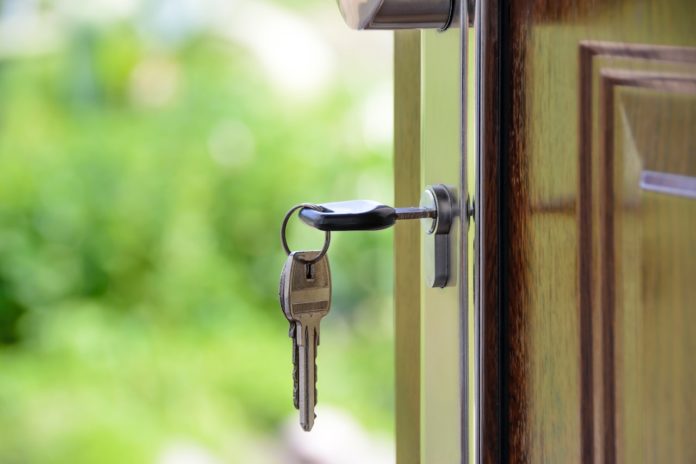The first step in getting ready to rent out your house is learning how to find quality tenants. The best tenants take care of your property, inform you immediately if they need help, and abide by the rules outlined in your contract.
Finding the right tenants can be a difficult task at first, but there are several strategies you can do right away to make it simpler.
What Makes Up a Good Tenant
Most landlords are considered good tenants as long as the tenant pays on time. Just because they pay on time doesn’t necessarily mean they are good tenants. You need to know various criteria first to define a good tenant. Here are some of those:
- Good references from past landlords
- No criminal record of lewd or dangerous behavior
- Can cover potential property damage with an upfront security deposit
- Courtesy and consideration for neighbors
- No prior history of eviction
- Stable income
- Healthy track record of on-time payments
- Good credit report
With these criteria in mind, here’s how to find a good renter to fill your vacant property.
Educate Yourself
The first step in finding a good tenant is to understand the law. You must know the federal, state, and local housing and tenancy laws. One law you should be aware of is the Fair Housing Act which protects certain groups from discrimination when renting. Be careful when advertising your rental property, as the wording in your listing might appear discriminatory. People get in trouble when they put words like “perfect for families,” “ideal for adults,” and “grad preferred,” etc., as inadvertently discriminating against a certain group.
To protect yourself, read through and understand the law. The following these steps will also help you :
- Be cautious with your words. You don’t want to give the impression that you are “steering” potential tenants who could belong to a protected class. There is little purpose in mentioning how someone’s color, religion, etc., may be perceived.
- Have a clearly defined application process and ensure everyone follows the same rules.
- Document every choice, mainly the reasons you are rejecting particular renters.
It would help if you also considered the income level of your rental property. If you upgrade your property with the idea of charging a higher rent, you might need help finding the right tenant. Make sure your property meets that fair market standard for the location and the property you are offering.
Advertise Your Property
Now that you’ve done your research, you’re ready to advertise. The best way to find the best renter is to stick to online advertising. When you advertise your property online, you’ll be able to reach many prospects at little to no expense.
Craigslist is a popular and free option to advertise your rental. When posting on craigslist, be wary of scammers who change the contact information on rental listings, take the rent money of potential tenants and then disappear.
Trulia provides a mobile application that enables landlords to access their rental listings, make changes, upload photographs, and connect with potential tenants.
You can advertise your rental property on websites for $50 to $100 per listing on rentals.com. What’s great about sites like these is that you’ll get to weed out potential scammers and screen potential tenants easily.
Now that you know where to advertise, here are some things you need to do so that potential tenants can find you.
- Focus on what you want to promote and the language that will appeal to your ideal tenant—schools, businesses, the neighborhood, etc.
- Highlight any perks your neighborhood (or you) are offering, such as access to a community pool, a free month’s rent, or other appealing things that will capture your attention and help you stand out.
- Professionally taken photos of your home can significantly impact the number of interested clients in your house. Focus on the things that make your property unique.
- Describe the lease’s critical points in detail. This involves the price, but you also need to consider other elements that will aid in the self-selection of potential tenants. It will save a lot of time, for instance, to include your pet policy, smoking policy, and minimum credit or income requirements.
Conduct a Comprehensive Tenant Screening
A thorough tenant screening is one of the most important aspects of selecting a good tenant. While it could be alluring to quickly search for a name on Google or browse social media to learn more about applicant behavior, you may need more information to make an informed renter selection. You may get a complete picture of someone by looking into their credit, criminal, and eviction history.
Verifying landlord references and examining tenant screening results is a good idea. It can be helpful to confirm facts on the reports and find out about topics that aren’t shown in the reports by having a quick talk with a prior landlord, such as:
- How are they with their neighbors
- If the landlord has received complaints from their neighbors.
- If the rented property was left in good condition
How to Keep Good Tenants
Now that you found the right tenant for your property, here’s how you can get them to stay long-term.
Communication is the Key
Always be prompt and clear when communicating with your tenants. Attend to their wishes and needs ASAP. Inform them if you intend to do a property inspection. Set the tone for communication throughout the lease at this time. What’s the best way to contact you, and when? What resources are available to them to inquire about or submit requests for the property?
Respect their Privacy
Even though you’ll need to inspect your home occasionally, nobody appreciates an unexpected visitor. Always pick a time that is most convenient for your tenants. Although it may be your property, it is their residence. To determine the boundaries of the law, see your state and local statutes. By doing this, you can uphold everyone’s rights.



